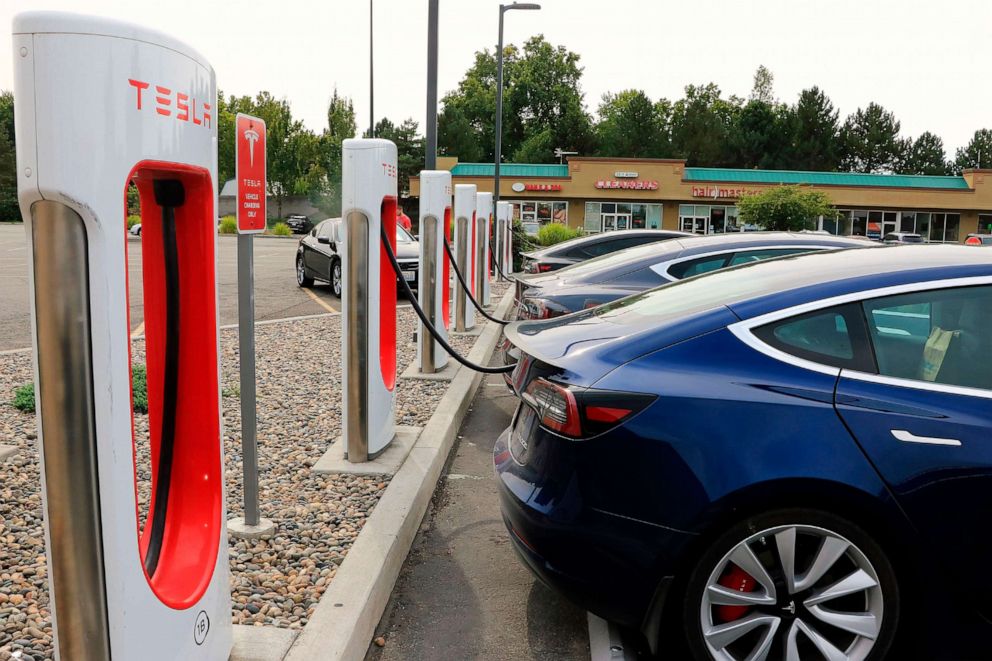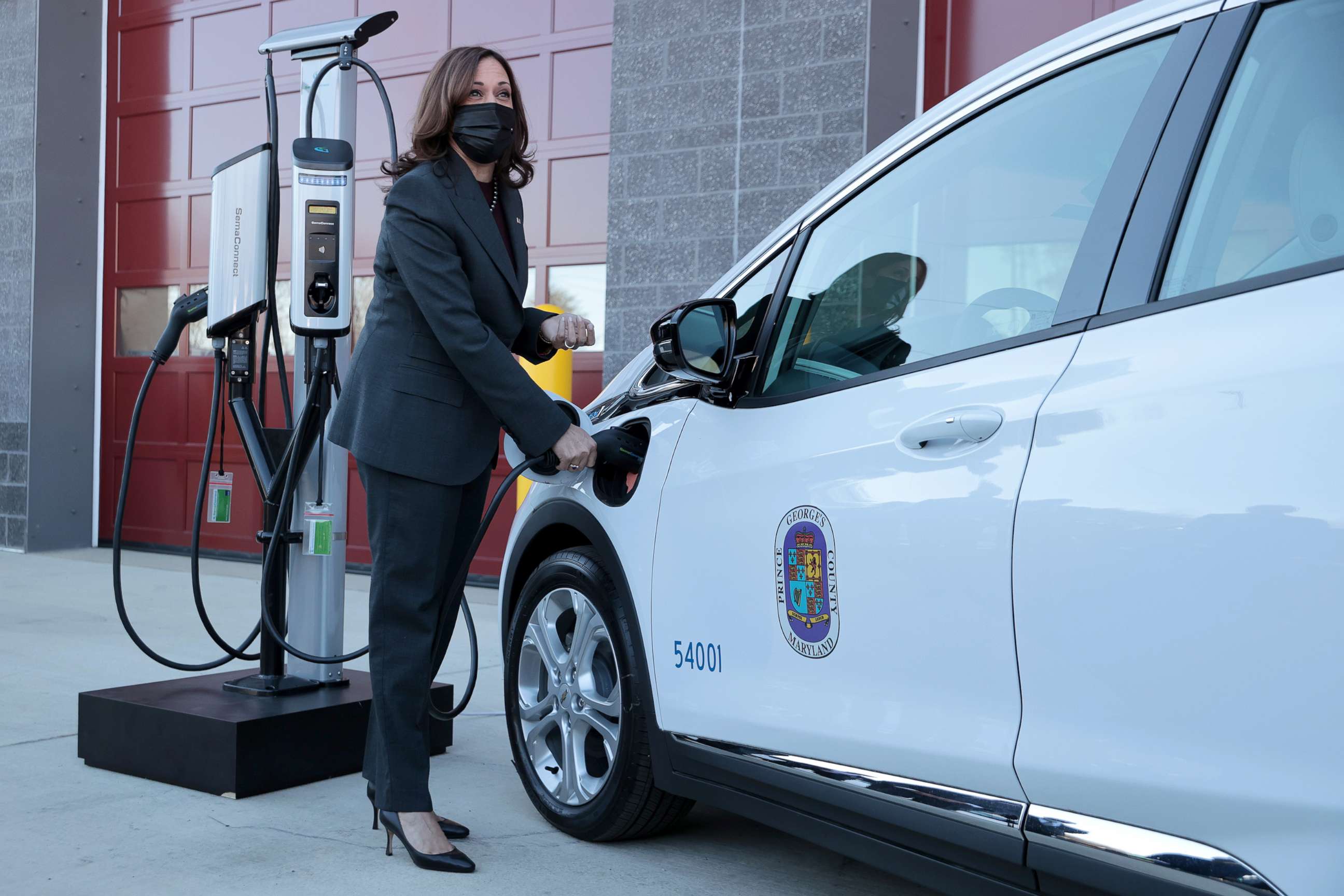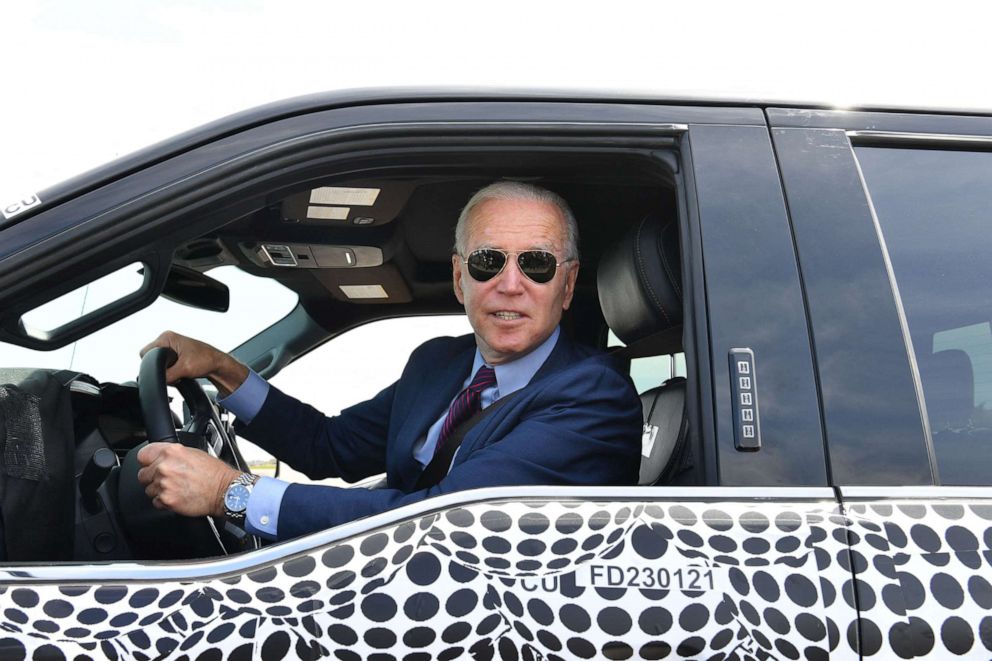Biden administration accelerates plans for a national EV charging network
Building EV charging stations in rural America is a goal of Biden's.
Vice President Kamala Harris will announce on Monday the administration's latest efforts to fast-track a nationwide charging network for electric vehicles.
The EV Charging Action Plan lays out how federal agencies, such as the Department of Energy and the Department of Transportation, can support the president's EV goals. Biden said he would like half of all new vehicle sales to be electric by 2030.
EVs currently make up 2% of the U.S. market. Sales of electrified vehicles -- pure battery electric vehicles, hybrids and plug-in hybrids -- accounted for 10.4% of total vehicle sales in the third-quarter of 2021, according to Kelley Blue Book, an all-time high. The best-selling EV in the U.S. is Tesla's Model Y.

A joint office will be set up between the Energy and Transportation agencies to leverage resources and build the nationwide network, according to the administration. Industry insiders argue that a million DC fast chargers -- which allow drivers to recharge 80% of a vehicle's battery in 30 minutes -- are needed to reach Biden's EV targets. There are currently fewer than 46,000 EV public charging sites in the U.S., according to Department of Energy data.
Creating a convenient, national charging infrastructure will build public confidence in EVs, according to the administration, which is focusing efforts on adding charging stations in rural, disadvantaged and hard-to-reach locations.

The DOT will also publish guidance no later than Feb. 11, 2022, for how cities and states can strategically deploy EV charging stations as part of this network. Meeting the needs of disadvantaged and rural communities and bringing on private investment are also necessary for achieving an electric future, the administration said. By May, the DOT will "publish standards for EV chargers in the national network to ensure they work, they’re safe and they’re accessible to everyone, according to the White House.
Moreover, the DOT and DOE will work directly with U.S. automakers on EV charging manufacturing, assembly, installation and maintenance to "drive domestic competitiveness and create good-paying, union jobs."
General Motors has plans to unveil 30 new electric vehicles by 2025, including the Cadillac Lyriq SUV and an all-electric Silverado truck. Ford said it plans to increase production of EVs to 600,000 units globally by 2030, making it the second-largest producer of EVs after Tesla.

President Joe Biden's $1 trillion infrastructure package includes $7.5 billion toward a nationwide network of 500,000 EV charging stations by 2030.




